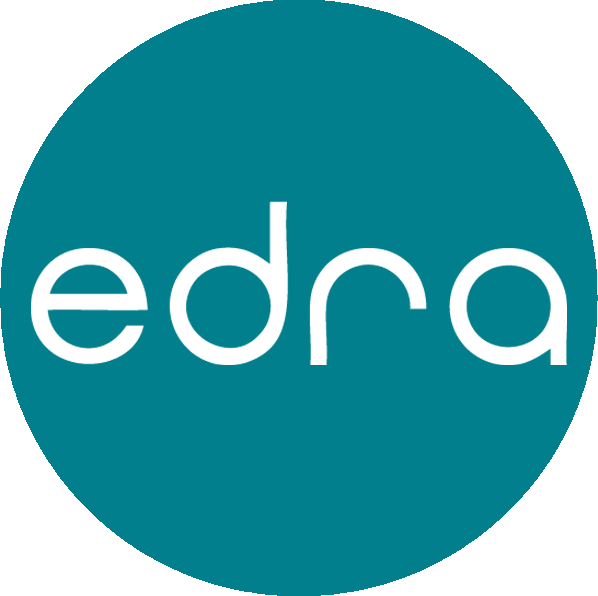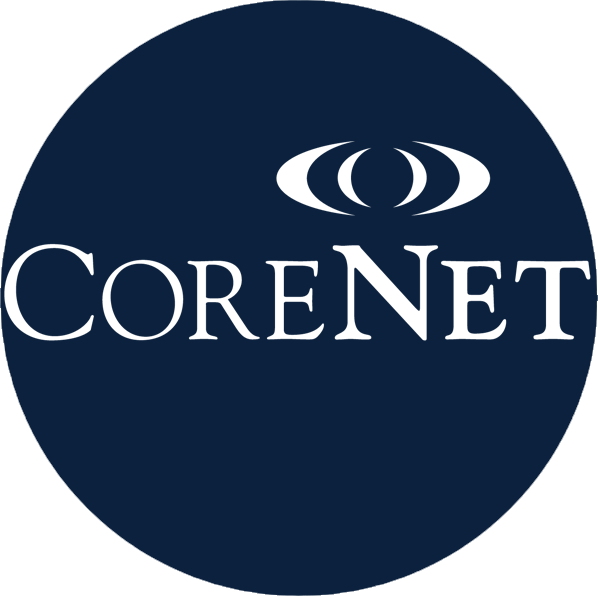What was I saying?
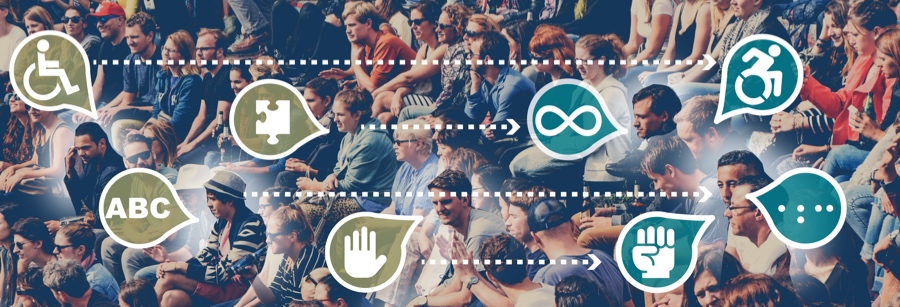
The Importance of Intentional Language
Did you know that some cultures “see” more colors than others? Or at least, they have names for and distinguish between more shades of a color.
Language is culturally-specific, dynamic and evolving, shaping our society and vice versa. In its strictest definition, “linguistic relativity” means we only perceive the aspects of the world for which we have language. There is evidence to suggest that without a word for something, we really are unable to see it. (Here’s an interesting video that ponders if ancient people saw the color blue.) A more recent example, domestic violence wasn’t considered a social problem in the United States until the ‘70’s or an on-the-books crime until the 1990’s, in part because it wasn’t named as such— or named at all.
“Language is the road map of a culture. It tells you where its people come from and where they are going,” said fiction writer Rita Mae Brown. In On Our Minds, we talk about talking—and specifically, the subconscious programming demonstrated and upheld in our language choices.
On our minds
This time three years ago, many of us were marching. We donned masks and took to the streets in support of Black Lives and in reaction to George Floyd’s murder. We were hoping for vaccines, and everyone was vulnerable, but some of us were more vulnerable than others. Anti-Asian hate-crimes in the U.S. rose 77-percent, and COVID death rates were highest among Indigenous and Black populations.
Two years ago, Juneteenth was finally recognized as a national holiday. This June, many of us are triple-vaccinated, but the political challenges around us abound. We’re facing new rounds of proposed anti-LGBTQ laws, many women have reduced control over their own health and reproductive choices, and the U.S. has set a new year-to-date record in mass shootings.
All of this brings our attention to the importance of making more conscious choices, on personal and policy levels. What we say, in what context, matters. Many of us are more careful than we used to be about avoiding gun-related phrases (“shoot me a message”) and gendered language (“you guys,” “master bedroom”). Certain terms have largely fallen out of use, for good reason. In design-related language, everything from “plantation shutters” to “masterplan” to “empowerment” has been called into question.
“Master,” in reference to craftspeople and performers, long predates the Antebellum period. It may seem unnecessary, even vexing, to allow the darkest historical use of a word to define that word. But if this term remains in your business lexicon, it should be a conscious and informed decision, one that considers the potential alienation it may cause. Perhaps “project map,” “comprehensive plan,” or “project strategy” are better options. In some cases, such as the software coding models of “master” and “slave,” better word choices should definitely be made.
“North Star”—often used by companies to refer to a statement of purpose—is another such term. For starters, if your business is international, the North Star may not even be relatable. It can only be seen in the Northern Hemisphere, which entirely ignores half of Africa, most of South America, and all of Australia. Beyond that, the term has historical significance in African-American culture, as escaped slaves followed the actual North Star to ensure that they were moving towards freedom. As a result, using the term in a corporate context might seem callous or appropriationist.
What about “chief," a word with French roots that has alternately been used as a racial slur, been accepted by some as a valid term of respect, and become synonymous with Indigenous leaders in our language-at-large? Is it disrespectful to use this word in a corporate sense? There are, as always, various takes.
Another term “blight,” often used in place-based descriptions, is racialized, classist and reductive. It may be used to justify a lack of investment or to depict a geographic area as a “blank slate,” ripe for top-down rather than grassroots-informed intervention. Vague, coded terms such as “ghetto” or “inner city” dismiss and generalize entire areas, ignoring unique attributes and leading to outcomes such as the mid-century construction of interstates that discounted and devastated vibrant communities of color in dozens of cities.
With more automated communications, and AI, it is even more important to focus on these topics. Just like young children, robots will tend to repeat what they hear around them. In a way, we can view machine-learning and AI as a mirror of our society. Robots are mechanically objective. All they know is what they’ve drawn from massive data collected from us, the biased humans. But a biased society creates biased bots and search engines, not to mention PR nightmares.
So yes, language has power. It has helped create and uphold systemic injustice. However, Black designer Leyden Lewis told Architectural Digest that he will continue using the term plantation shutters "because it references where they come from historically. If we don’t have a language to code, we will lose the story of its origins.” He is not alone in arguing for thinking bigger than semantics and instead, changing mindset.
Actual diversity and inclusion in corporate, nonprofit, and governmental spaces, rather than token changes, will lead to more equitable mindsets—and better bots. And this diversity should be intersectional and expansive, taking into account not only race and gender, but neurodivergence, differently-abled bodies and different socioeconomic backgrounds. In order to create real change, many of us need invest in some self-scrutiny and unlearning. Being extra-intentional about our language is just one part of the overall process, of being a responsible community member, and just one part of embracing change with intention.
From the archives
In the early-summer of years past, we covered office acoustics, light and other geometrical factors that make up a workplace, as well as what makes a city a great place to work. We were also very curious about London’s Millennium Bridge.
In the spirit of powerful language, we’ll leave you with this Tank & the Bangas piece, which points out how the “weapons that do the most damage to the ones we love are the ones in our mouth.” Happy Juneteeth, happy Father's Day, and happy start-to-summer!
In Case You Missed It
Summer is a time to linger (perhaps over breakfast, as we suggested last month!). But sometimes all that lingering means you arrive late to the party. Don’t worry – we’ll bring you up to speed!
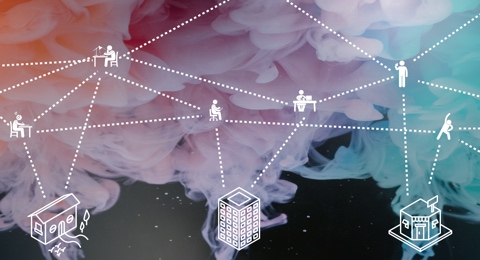
Healthy Workplaces are Built on Feedback
In PLASTARC’s latest webinar, we discussed how the purpose of the physical office has evolved since COVID and how essential employee input is to redefining workplace purpose for our current era.

JCCA Relocation Support
By the end of this year, JCCA will have transitioned over 500 occupants into new spaces and new ways of working in Brooklyn and the Bronx. PLASTARC supported a shift to unassigned space while also enriching JCCA's unique, mission-based culture.
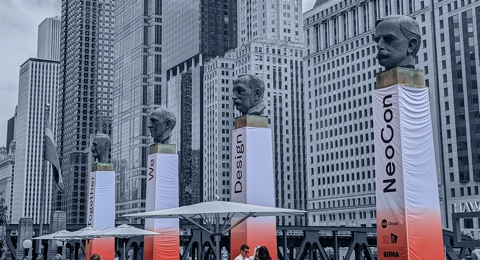
The Future of Furniture
The US’s biggest furniture show was recently held in one of the US’s biggest buildings. Interior Design magazine has the highlights, and we'll be sharing more over the next few months.

If you Build it, they will Pedal
During quarantine, we did a lot of biking. Some cities are encouraging this habit to stick around, with new bike lanes in Austin, New York, and Minneapolis to name a few.
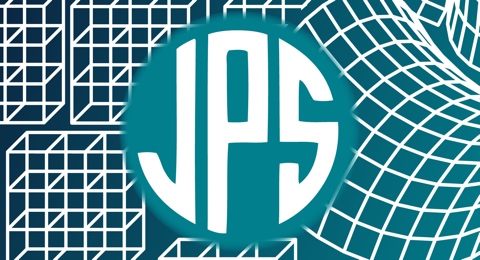
Goodbye, to a Major Contributor to Public Architecture
In his roughly 70-year career, James Stewart Polshek designed institutional gems, such as the Clinton Library, the Santa Fe Opera, DC’s Newseum, and more. He was a longtime Columbia professor with a modernist sensibility.
Looking Ahead
This June, we’re diving-in, literally and metaphorically. Care to join us?


